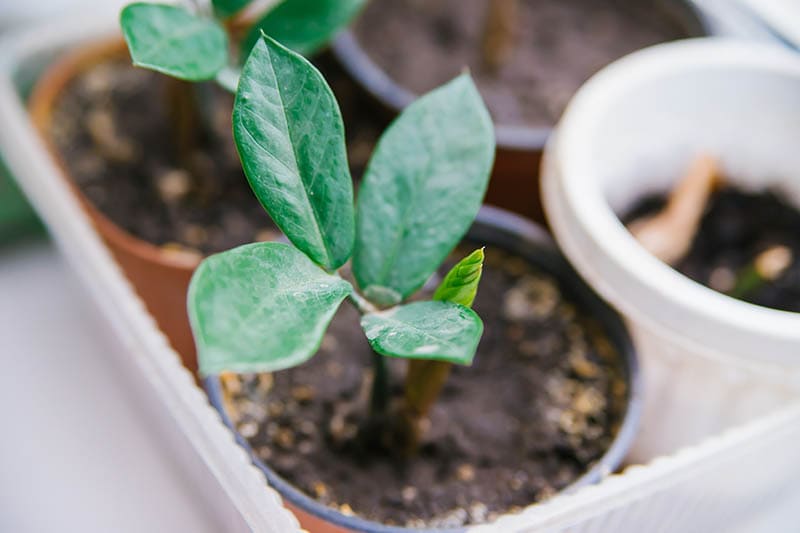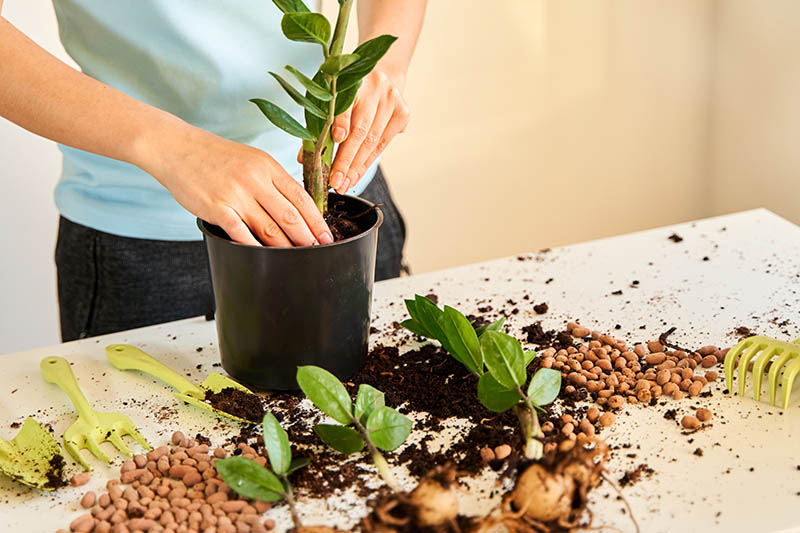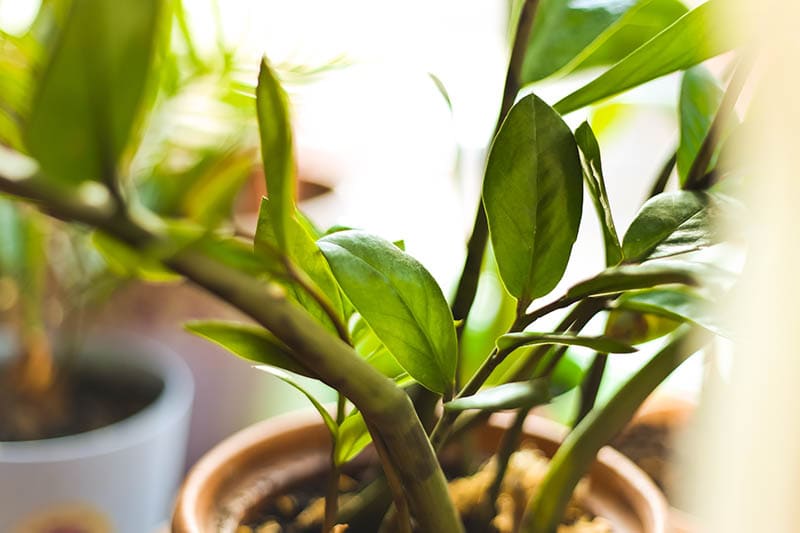Do ZZ Plants Like to Be Root Bound? What You Need to Know!
-
Ed Malaker
- Last updated:

ZZ plants, or Zamioculcas zamiifolia, are fantastic houseplants that many gardening centers tout as being extremely low maintenance, which might have some people wondering if they like to be root bound and don’t need transplanting. Unfortunately, while ZZ plants can tolerate being slightly root bound, you will need to transplant them occasionally. Keep reading as we explain what a root-bound plant is and how you can tell if it’s happening to your ZZ plant.
What Is a Root-Bound Plant?
Root bound is when the roots of a plant have grown larger than the container can handle. The roots can replace much of the soil as they expand, which will cause water and nutrients to pass through the pot before the plant can absorb them. The ZZ plant grows from rhizomes, which are like fleshy tubes, and if they get too large under the soil, they can begin pressing into each other, leading to root rot.

What Are the Signs That My ZZ Plant Is Root Bound?
Your ZZ plant is starting to become root bound when you can see the rhizomes pressing up under the soil’s surface or against the sides of the container. Large rhizomes can even distort the shape of the container. You might also see signs of distress, including yellow and brown leaves, lack of growth, and wilting, and the soil will usually dry up quickly.
When Should I Repot My ZZ Plant?
Since ZZ plants like to be slightly root bound, it’s a good idea to wait until you notice the rhizomes under the surface or pressing against the side before replanting, but you don’t want to wait until there are signs of distress. It usually takes 2–3 years for a ZZ plant to outgrow a pot. Many gardeners also recommend replanting in the spring or early summer because it will be more tolerant during the growing season.
Should I Repot or Propagate?
When your ZZ plant outgrows its current pot, you will need to replant it into a pot one size bigger or separate the rhizome into individual plants. If you choose to separate the rhizomes, make clean cuts, removing one that has at least one stem growing from it. Use clean pruning shears to make a single cut instead of a saw.

What Kind of Soil Does My ZZ Plant Need?
Your ZZ plant will grow best in potting soil that uses two- to three-part peat moss to one-part perlite, which will help the soil drain well but still hold plenty of nutrients.
How Often Should I Water My ZZ Plant?
Water your ZZ plant thoroughly, but let it dry out before watering again. Most experts recommend waiting until the soil feels dry to a depth of at least 3 inches.
Do I Need to Fertilize My ZZ Plant?
One of the best things about these low-maintenance plants is that you can set and forget them, with only occasional watering and repotting being required. However, you can add a slow-release fertilizer in the spring or summer if you find that it’s growing too slowly, but be sure to only use a small amount.
How Fast Does the ZZ Plant Grow?
The ZZ plant is a slow grower that produces only a few new stems yearly. If you want it to grow faster, you can add a light fertilizer in the spring or summer, and don’t let it go too long without water.
Conclusion
While the slow-growing ZZ plant can tolerate and live a long time being slightly root-bound, the condition can slow its growth, prevent it from getting the nutrients that it needs, and even lead to root rot. It’s best to repot every 2 years or when you start to see signs that the plant is root-bound, like its rhizomes bulging out of the soil or distorting the shape of the container. Transplant it into the next size container, or split the rhizomes into several plants if you want to keep them small.
Featured Image Credit: Alie04, Shutterstock
Contents
